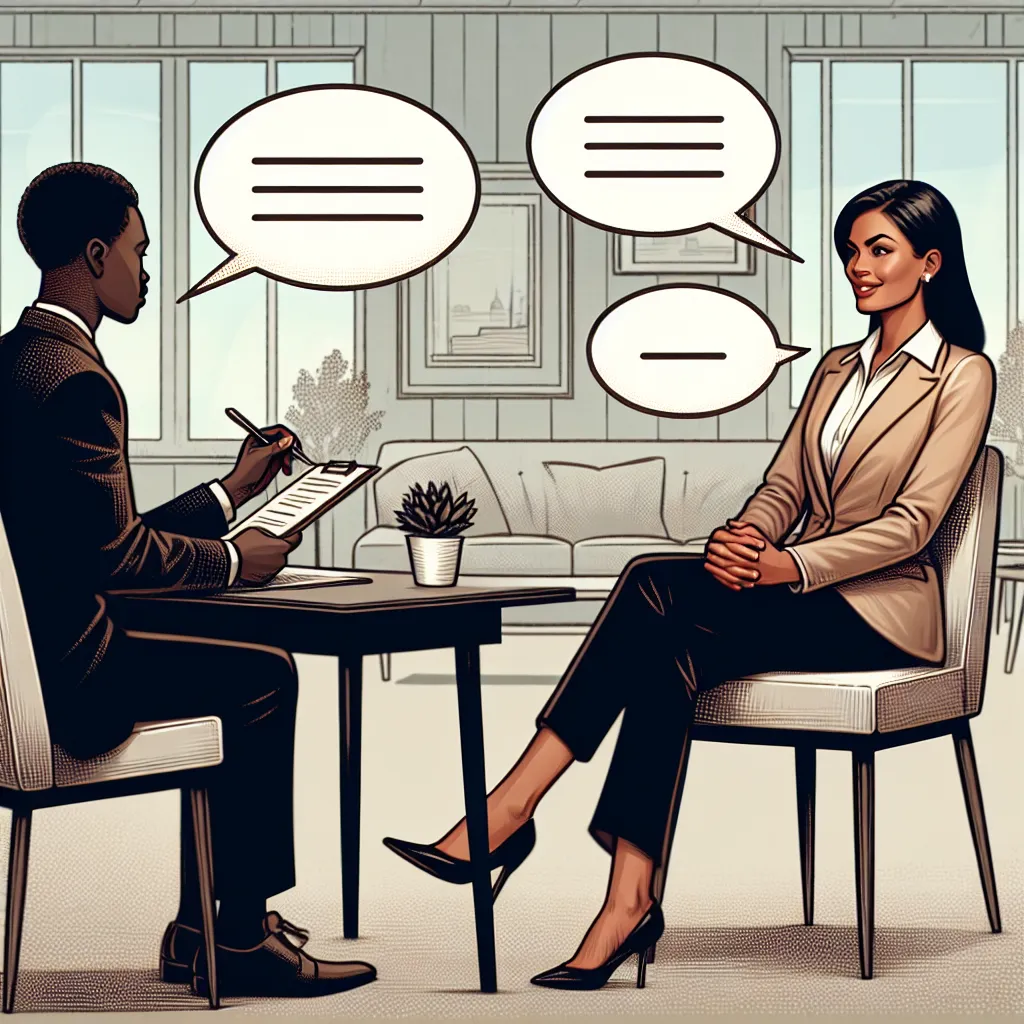In today’s competitive job market, mastering the art of interviewing is crucial. However, sometimes candidates face inappropriate or even illegal questions during interviews. This guide will help you navigate these tricky situations with confidence and professionalism.
Understanding Inappropriate Interview Questions
Inappropriate interview questions are those that delve into personal matters unrelated to the job or violate equal employment opportunity laws. These questions often touch on protected characteristics such as age, race, religion, marital status, or sexual orientation.
Why Inappropriate Questions Arise
- Lack of training: Some interviewers may not be aware of legal boundaries.
- Cultural differences: What’s acceptable in one culture may be inappropriate in another.
- Genuine but misguided curiosity: The interviewer might be trying to make conversation.
- Deliberate testing: Some may ask these questions to see how you handle difficult situations.
 Inappropriate interview questions concept
Inappropriate interview questions concept
Common Inappropriate Questions and How to Handle Them
1. Age-related Questions
Question: “How old are you?” or “When did you graduate?”
How to handle: Redirect the conversation to your experience and skills.
Example response: “I have X years of relevant experience in this field, which I believe makes me well-qualified for this position.”
2. Marital Status and Family Planning
Question: “Are you married?” or “Do you plan to have children?”
How to handle: Focus on your commitment to the job.
Example response: “I’m fully committed to my career and capable of fulfilling all the responsibilities of this role.”
3. Religious Affiliation
Question: “What religion do you practice?”
How to handle: Emphasize your ability to work with diverse groups.
Example response: “I’m comfortable working with people of all backgrounds and beliefs. Can you tell me more about the diversity initiatives in your company?”
4. Nationality or Ethnic Background
Question: “Where are you really from?” or “Is English your first language?”
How to handle: Redirect to your qualifications and language skills.
Example response: “I’m fluent in English and [other languages if applicable]. My communication skills have been a great asset in my previous roles.”
5. Health and Disabilities
Question: “Do you have any disabilities?” or “How’s your health?”
How to handle: Address your ability to perform job functions.
Example response: “I’m confident in my ability to perform all the essential functions of this job. Are there specific physical requirements you’d like to discuss?”
Strategies for Handling Inappropriate Questions
-
Assess the intent: Consider if the question is genuinely inappropriate or just poorly phrased.
-
Redirect politely: Steer the conversation back to your qualifications and the job requirements.
-
Address the underlying concern: Try to understand what information the interviewer is really seeking.
-
Use humor carefully: In some cases, a light-hearted response can diffuse tension, but be cautious.
-
Decline to answer: If a question is clearly inappropriate, you have the right to politely refuse to answer.
 Professional handling inappropriate questions
Professional handling inappropriate questions
Sample Responses to Inappropriate Questions
-
Question: “Are you planning to start a family soon?”
Response: “I’m focused on my career goals right now. Can you tell me more about the growth opportunities in this role?” -
Question: “What political party do you support?”
Response: “I prefer to keep my political views private. I’m more interested in discussing how I can contribute to your company’s goals.” -
Question: “Have you ever been arrested?”
Response: “I don’t have any convictions that would affect my ability to perform this job. Is there a specific concern about the role’s responsibilities you’d like to discuss?” -
Question: “How long have you been in the country?”
Response: “I’m legally authorized to work in this country. I’d be happy to provide any necessary documentation if I’m offered the position.” -
Question: “Do you drink socially?”
Response: “I’m comfortable participating in company events and maintaining professional relationships with colleagues. Could you tell me more about the company culture?”
Common Mistakes to Avoid
- Becoming confrontational: Maintain a professional demeanor, even if offended.
- Oversharing: Don’t feel pressured to disclose personal information.
- Ignoring red flags: If an interviewer persistently asks inappropriate questions, consider if this is a company you want to work for.
- Failing to prepare: Anticipate potentially uncomfortable questions and practice your responses.
- Missing the opportunity to showcase skills: Use your handling of tough questions to demonstrate your communication and problem-solving abilities.
For more insights on handling challenging interview situations, check out our article on how to handle a difficult interviewer.
Follow-up Questions and Suggested Responses
-
Q: How did you handle that inappropriate question?
A: “I tried to understand the underlying concern and redirected the conversation to my qualifications for the role. I believe in maintaining a professional dialogue during interviews.” -
Q: Were you uncomfortable with any of the questions asked today?
A: “While some questions were unexpected, I appreciated the opportunity to clarify my qualifications and discuss how I can contribute to your team.” -
Q: How would you respond if a colleague asked you similar personal questions?
A: “I would politely explain that I prefer to keep my personal and professional lives separate, and redirect the conversation to work-related topics.” -
Q: What would you do if you witnessed inappropriate behavior in the workplace?
A: “I would follow the company’s procedures for reporting such incidents, ensuring that the appropriate channels are informed while maintaining professionalism.” -
Q: How do you ensure your own biases don’t affect your work relationships?
A: “I continuously educate myself on diversity and inclusion, and I’m committed to treating all colleagues with respect, focusing on their professional qualities rather than personal characteristics.”
To further enhance your interview skills, you might find our article on common interview mistakes to avoid helpful.
Conclusion
Handling inappropriate interview questions requires tact, professionalism, and preparation. By understanding the nature of these questions and practicing your responses, you can navigate challenging interviews with confidence. Remember, your goal is to showcase your qualifications and suitability for the role while maintaining your integrity.
As you prepare for your next interview, consider reviewing our guide on how to answer behavioral questions to further polish your interview skills. Good luck with your job search!




